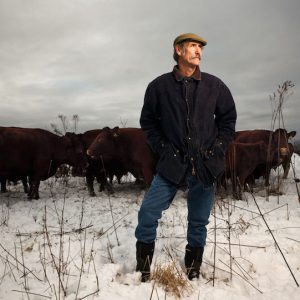Ep. 70: Elizabeth Whitlow – Executive Director of Regenerative Organic Alliance ||
.
On Sourcing Matters episode 70 we welcome Elizabeth Whitlow – Executive Director of the Regenerative Organic Alliance (ROA). In early 2018, the ROA was formed as a non-profit cohort of organizations and businesses led by Rodale Institute, Patagonia, and Dr. Bronner’s. These vested founders began the process of developing a Regenerative Organic Certification (ROC) – a unique, high-bar agricultural standard that leverages the foundation of USDA certified organic – and elevates it steps further.
.
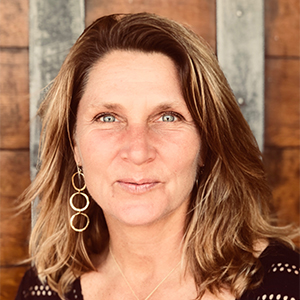 The goal of regenerative organic agriculture is to offer practical solutions to the world’s biggest social and ecological challenges. We’ve learned that we’re beyond the point of sustainability and we need to regenerate the soil and land that supports us, the animals that nourish us, and the farmers and workers that feed us. This has developed into a call to action of the ROA and defined a path forward where we’re all part of the solution.
The goal of regenerative organic agriculture is to offer practical solutions to the world’s biggest social and ecological challenges. We’ve learned that we’re beyond the point of sustainability and we need to regenerate the soil and land that supports us, the animals that nourish us, and the farmers and workers that feed us. This has developed into a call to action of the ROA and defined a path forward where we’re all part of the solution.
.
In our 45 minute conversation we discuss the iterative approach that Elizabeth and her supporters are taking in rolling-out the ROC standards. We learn how the industry can begin to better incentivize on-ramping of more producers and suppliers that will implement elevated production standards to source differentiated food for the benefit of human, animal and planetary health. We assess the roles of the different stakeholders, and how that all comes to fruition through the actions of consumers. We discuss how these new high-bar standards relate to Soil Health, Animal Welfare & Social Fairness, and what that means for broader audiences of both farmers and eaters.
.
Elizabeth Whitlow has dedicated her career in regenerative agriculture to further the impact of high-bar certifications. Prior to taking the helm at the ROA, in her most recent role as EarthClaims’ director of certification she oversaw a team working to provide private, third-party verification services for animal welfare, grass-fed claims, antibiotic-free and customized audits to support specific marketing claims. Prior to EarthClaims, Elizabeth was a fellow at the Leadership for a Sustainable Future. Elizabeth also spent 16 years with California Certified Organic Farmers in roles ranging from reviewer, senior inspector, and livestock specialist to inspection operations manager.
.
.


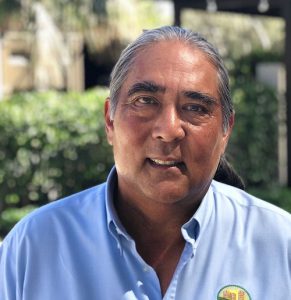 A.G. Kawamura is third generation fruit and vegetable grower and shipper from Orange County. He is the former Secretary of the California Department of Food and Agriculture (2003-2010). As a progressive urban farmer, A.G. has a lifetime of experience working within the shrinking rural and urban boundaries of Southern California. Through his company, Orange County Produce, LLC, he is engaged in building an exciting, interactive 21st century 100 acre agricultural showcase at the Orange County Great Park in Irvine, CA.
A.G. Kawamura is third generation fruit and vegetable grower and shipper from Orange County. He is the former Secretary of the California Department of Food and Agriculture (2003-2010). As a progressive urban farmer, A.G. has a lifetime of experience working within the shrinking rural and urban boundaries of Southern California. Through his company, Orange County Produce, LLC, he is engaged in building an exciting, interactive 21st century 100 acre agricultural showcase at the Orange County Great Park in Irvine, CA. With his wife Anne Biklé, David is currently framing out his fourth book. We learned that with “What your food eats” – working title of this latest deep dive – this husband & wife writing duo seek to connect soil fertility to human health. Anne and David have also worked together to pen the book ‘Dirt’ —about the plight of soil and what we’ve done to it since the dawn of agriculture. And, ‘The Hidden Half of Nature’, a revealing exploration of how microbial life underpins the health of soil and, even our own bodies.
With his wife Anne Biklé, David is currently framing out his fourth book. We learned that with “What your food eats” – working title of this latest deep dive – this husband & wife writing duo seek to connect soil fertility to human health. Anne and David have also worked together to pen the book ‘Dirt’ —about the plight of soil and what we’ve done to it since the dawn of agriculture. And, ‘The Hidden Half of Nature’, a revealing exploration of how microbial life underpins the health of soil and, even our own bodies.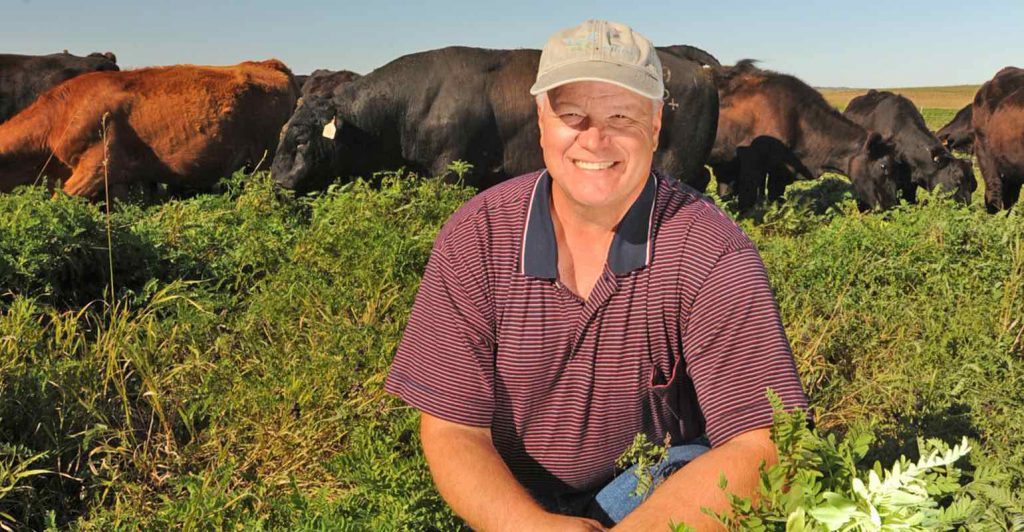
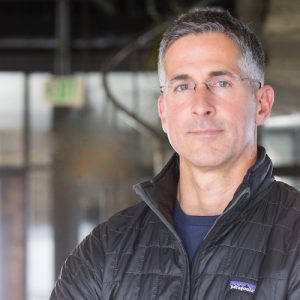 Prior to Thrive, McIntosh was the founding Director of Sustainability & Corporate Citizenship at Nestlé Waters North America, the $4B division of the world’s largest consumer water company. At Nestlé Waters, Alex developed the vision and strategic plan, and provided hands-on leadership to build the corporation’s first sustainability program from the ground up during a time of intense social scrutiny. Prior to Nestlé, Alex was Director of Philanthropy at The Nature Conservancy, where he helped raise a record $75MM in private capital for two of the largest watershed conservation projects in the organization’s history.
Prior to Thrive, McIntosh was the founding Director of Sustainability & Corporate Citizenship at Nestlé Waters North America, the $4B division of the world’s largest consumer water company. At Nestlé Waters, Alex developed the vision and strategic plan, and provided hands-on leadership to build the corporation’s first sustainability program from the ground up during a time of intense social scrutiny. Prior to Nestlé, Alex was Director of Philanthropy at The Nature Conservancy, where he helped raise a record $75MM in private capital for two of the largest watershed conservation projects in the organization’s history.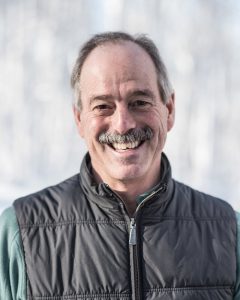 They’re surely good eating, but oysters represent so much good to their surrounds, the shared environments, and the communities they support. You see, each adult oyster filters 50 gallons of water daily, they restore keystone marine ecosystems, and they build protective reefs around susceptible coastal communities – protecting us from storm surge and severe weather events. In this 45 minute discussion Bill Mook goes into details describing why Oysters are so important to the stability of seas, and to our planet. As you’ll hear, Mook has implemented bleeding-edge R&D in his hatchery that is second to none. Innovations include development of methods for overwintering seed out of the water; a tidal powered nursery system; a vessel and gear for mechanizing the use of OysterGro™ cages; and a unique, energy efficient, and highly productive system for growing the micro-algae we use for food in the hatchery. Effectively his approach to “brew” feed for Oysters, or for other animals for that matter, sets to be revolutionary.
They’re surely good eating, but oysters represent so much good to their surrounds, the shared environments, and the communities they support. You see, each adult oyster filters 50 gallons of water daily, they restore keystone marine ecosystems, and they build protective reefs around susceptible coastal communities – protecting us from storm surge and severe weather events. In this 45 minute discussion Bill Mook goes into details describing why Oysters are so important to the stability of seas, and to our planet. As you’ll hear, Mook has implemented bleeding-edge R&D in his hatchery that is second to none. Innovations include development of methods for overwintering seed out of the water; a tidal powered nursery system; a vessel and gear for mechanizing the use of OysterGro™ cages; and a unique, energy efficient, and highly productive system for growing the micro-algae we use for food in the hatchery. Effectively his approach to “brew” feed for Oysters, or for other animals for that matter, sets to be revolutionary.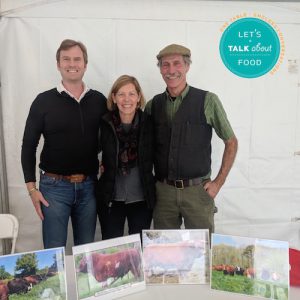 Sourcing Matters ep. 41: “Systems Thinking in food production”– live recorded at the “Let’s talk about Food” festival at Harvard University – looks at harmonizing with more natural systems, and evaluates better management practice that could be used to produce our food in the future. Host Aaron Niederhelman will guide the discussion to cover diverse topics. Not the least of which a process that’s being used to sequester carbon through reengaging the natural system of our living soils – on the hoof. Additionally, one of the most under valued workforce in food production – pollinators. And, it’ll be a conversation that clearly detail how what you eat is the most impactful vote you have to positively benefit your health and that of your family, to increase global stability and to mitigate climate change. So, If you’re an environmentalist, a humanitarian, a patriot, a doctor, or even that you just want to look and feel better – tune-in and learn how your grocery budget can change the world.
Sourcing Matters ep. 41: “Systems Thinking in food production”– live recorded at the “Let’s talk about Food” festival at Harvard University – looks at harmonizing with more natural systems, and evaluates better management practice that could be used to produce our food in the future. Host Aaron Niederhelman will guide the discussion to cover diverse topics. Not the least of which a process that’s being used to sequester carbon through reengaging the natural system of our living soils – on the hoof. Additionally, one of the most under valued workforce in food production – pollinators. And, it’ll be a conversation that clearly detail how what you eat is the most impactful vote you have to positively benefit your health and that of your family, to increase global stability and to mitigate climate change. So, If you’re an environmentalist, a humanitarian, a patriot, a doctor, or even that you just want to look and feel better – tune-in and learn how your grocery budget can change the world.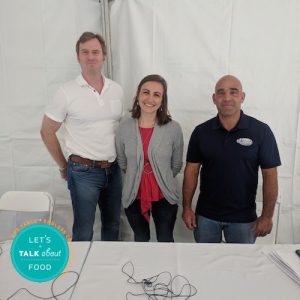 Sourcing Matters ep.
Sourcing Matters ep.  Throughout the 45 minute conversation Shauna shares some interesting anecdotes of situations that have arisen in her time at as VP at Annie’s, and most recently while managing the organic allotment of General Mills’ vast arsenal of products.
Throughout the 45 minute conversation Shauna shares some interesting anecdotes of situations that have arisen in her time at as VP at Annie’s, and most recently while managing the organic allotment of General Mills’ vast arsenal of products.